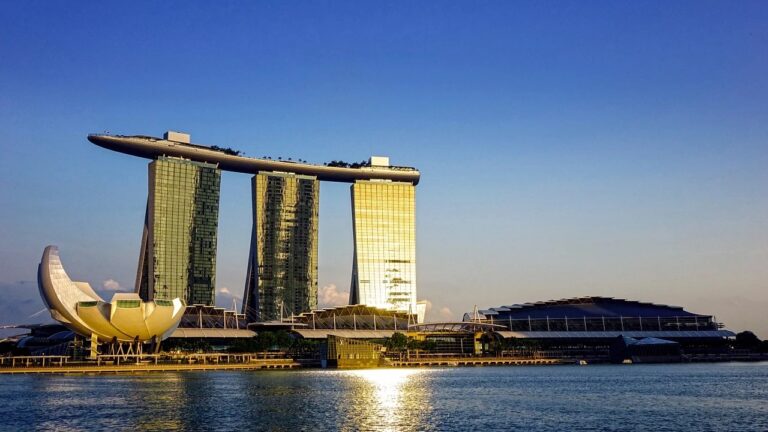The hospitality industry in Southeast Asia is spreading its wings and poised for greater heights.
The region is the fastest growing travel market worldwide, with Global Data’s March 2019 report forecasting that international visitors to the ASEAN region will hit 155.4 million by 2022, growing at an annual rate of 4.72% from 2018.
As tourism to the region flourishes, accommodation supply is naturally expected to continue its uptick in the next few years, says industry veteran Robert Chong, General Manager of Ultima Asia Technology’s Singapore headquarters.
Amid such fierce competition, it’s hard for hotels to find their footing and stand out. Robert, who was formerly the Managing Director of Micros-Fidelio Southeast Asia, shares three important things about Southeast Asia’s hospitality industry that hoteliers should be aware of.
Increasing Demand for Online Mobile-First Services
Southeast Asian tourists have a growing appetite for mobile and online services, Robert says, although he notes that offline booking channels are still a predominant force in the region.
This year, research by travel database Phocal Point found that offline bookings make up more than half of all gross bookings in Singapore, Indonesia and Thailand, a trend that is predicted to decrease only slightly through 2022.
However, reliance on the internet is increasing across the region, with e-Conomy SEA 2019 reporting that there are currently over 360 million Internet users in the region. The report, jointly published by Google, Temasek Holdings and Bain & Company, also found that Southeast Asians are the most engaged mobile Internet users in the world. On a global scale, mobile penetration in Southeast Asia is among the highest, with Thailand, Malaysia, Indonesia and the Philippines ranking in the top 10 countries by mobile usage. It is hence essential for hotels to move their systems online sooner rather than later, according to Robert.

In turn, the increased use of the Internet and high mobile penetration have had a tremendous impact on the online travel economy in the region – the sector grew to $34.4 billion in 2019, up from $19.4 billion in 2015. It is therefore necessary for hotels to keep up with or stay ahead of their increasingly mobile-savvy guests, with the strategic use of technology services.
From the pre-trip experience with simplified online reservation processes, to streamlining the actual check-in experience with mobile apps, self-check-in kiosks and e-payment, to enhancing guest stays with tailored recommendations, “much can be achieved with effective use of technology that can help a hotel win over its guests,” Robert notes.
High Regional Footfall
Another unique feature of tourism in Southeast Asia is the popularity of regional travel. According to e-Conomy SEA 2019, intra-ASEAN travel now accounts for almost half of all international visitors the region receives.
This is due to the rise of low-cost carriers and increasing wealth of young travellers, making intra-country travel considerably more affordable and accessible. “They can fly for cheap, so they are more willing to splurge on their accommodations and other aspects of the trip,” Robert says.

Experience is the keyword when it comes to the Southeast Asian traveler. They are willing to fork out larger sums in exchange for rich guest experiences, and are more disposed to make repeat visits to the same destination. Hotels must hence be equipped with the facilities to make every stay unique and fresh for their guests, and be ready to provide them with new perspectives of familiar places.
Customised hotel stays built on guest data and preferences gathered from previous stays would be a major boost, Robert adds, “When your guest knows you value them more than a business statistic, it’s a surefire way for your hotel to rise above the competition.”
Regional Variance
The Asia Pacific Chains & Hotels Report 2018 found that most Southeast Asian countries, with the exception of Singapore, have significantly lower chain hotel market penetration as compared to independent hotels.
“Southeast Asia is a complex region, with great variances in language and cultural nuances across countries,” says Robert.
Even as international chains with extensive funding enter the market, independents can carve out a niche for themselves and compete neck-to-neck by leveraging on their extensive knowledge and understanding of the local market. Being well-established locally, they know how to best cater to the needs of their local audiences and communicate with them.
But independent hotels can go a step further, says Robert. Besides providing domestic travelers a familiar, trusted environment, they can appeal to international travelers with the promise of an authentic, local experience.

Since they know their home turf like the back of their hand, independent hotels are able to provide guests unique recommendations to places off the beaten track and introduce local delicacies. This ultimately value-adds to the guest experience in ways beyond their stay in the hotel.
Together with the use of guest-centric technology, such as multilingual apps, the language barrier that might otherwise intimidate both hotel staff and guests alike is easily breached.
“Many Southeast Asian countries have not fully developed their tourism infrastructure, and there is a lot of room for growth,” Robert reveals. “If independent hotels can stay one step ahead of the curve by recognising and playing up their strengths, their potential for expansion locally, regionally, and eventually, internationally will skyrocket. “
Privacy Overview
| Cookie | Duration | Description |
|---|---|---|
| cookielawinfo-checkbox-analytics | 11 months | This cookie is set by GDPR Cookie Consent plugin. The cookie is used to store the user consent for the cookies in the category "Analytics". |
| cookielawinfo-checkbox-functional | 11 months | The cookie is set by GDPR cookie consent to record the user consent for the cookies in the category "Functional". |
| cookielawinfo-checkbox-necessary | 11 months | This cookie is set by GDPR Cookie Consent plugin. The cookies is used to store the user consent for the cookies in the category "Necessary". |
| cookielawinfo-checkbox-others | 11 months | This cookie is set by GDPR Cookie Consent plugin. The cookie is used to store the user consent for the cookies in the category "Other. |
| cookielawinfo-checkbox-performance | 11 months | This cookie is set by GDPR Cookie Consent plugin. The cookie is used to store the user consent for the cookies in the category "Performance". |
| viewed_cookie_policy | 11 months | The cookie is set by the GDPR Cookie Consent plugin and is used to store whether or not user has consented to the use of cookies. It does not store any personal data. |